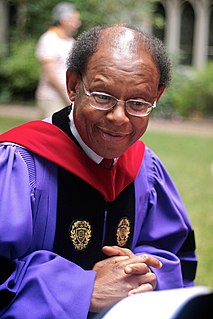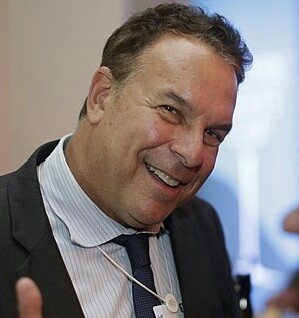A Quote by James H. Cone
While the rich reap most of the benefits of technological development, the poor bear an unequal burden of dealing with the consequences of the resulting increased pollution. The poor continue to live in greatest proximity to the sources of pollution, the infrastructure and machinery of industry. They work in the most polluted and physically dangerous workplaces. And these same individuals, living and working closest to the sources of environmental catastrophe, are also the ones most lacking decent health care.
Quote Topics
Also
Bear
Benefits
Burden
Care
Catastrophe
Closest
Consequences
Continue
Dangerous
Dealing
Decent
Development
Environmental
Greatest
Health
Health Care
Increased
Individuals
Industry
Infrastructure
Lacking
Live
Living
Machinery
Most
Physically
Pollution
Poor
Proximity
Reap
Rich
Same
Sources
Technological
Technological Development
Unequal
While
Work
Working
Related Quotes
Don't assume that the way that one searches and researches is the same from one era to another - it isn't. In the 19th century, most research was done by amateurs: either individuals who were rich or individuals who had a day job. In the 20th century, most researchers worked at universities or think tanks and received money from the government or from foundations to pursue their work. In our time, the sources of support and the locations for research may be quite different.
It is easy to say that there are the rich and the poor, and so something should be done. But in history, there are always the rich and the poor. If the poor were not as poor, we would still call them the poor. I mean, whoever has less can be called the poor. You will always have the 10% that have less and the 10% that have the most.
In the world of development, if one mixes the poor and the nonpoor in a program, the nonpoor will always drive out the poor, and the less poor will drive out the more poor, unless protective measures are instituted right at the beginning. In such cases, the nonpoor reap the benefits of all that is done in the name of the poor.
Diversity" is a difficulty to be overcome, not an advantage to be sought. True, America does a better job than most at accommodating a diverse population. We also do a better job at curing cancer and containing pollution. But no one goes around mindlessly exclaiming: "Cancer is a strength!" "Pollution is our greatest asset!
While the most disadvantaged students - most often poor students of color - receive the most considerable academic benefits from attending diverse schools, research demonstrates that young people in general, regardless of their background, experience profound benefits from attending integrated schools.
Even the most ardent environmentalist doesn't really want to stop pollution. If he thinks about it, and doesn't just talk about it, he wants to have the right amount of pollution. We can't really afford to eliminate it - not without abandoning all the benefits of technology that we not only enjoy but on which we depend.

































